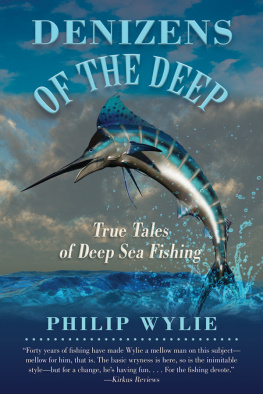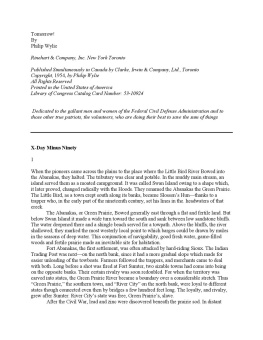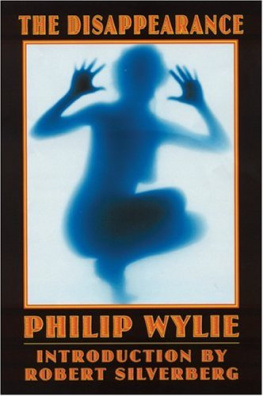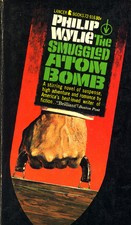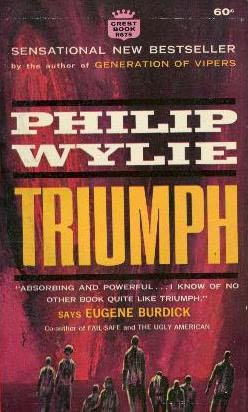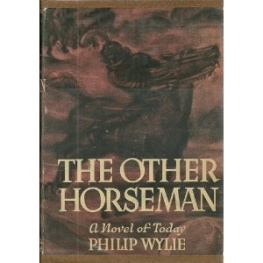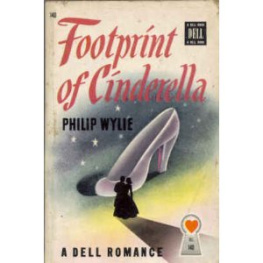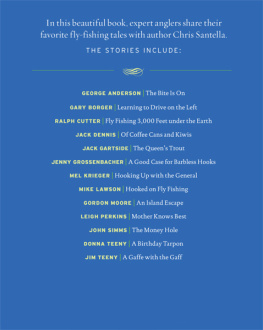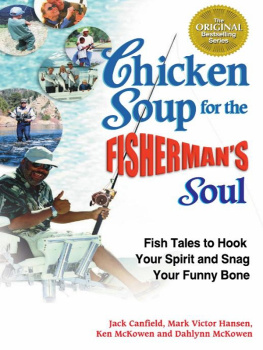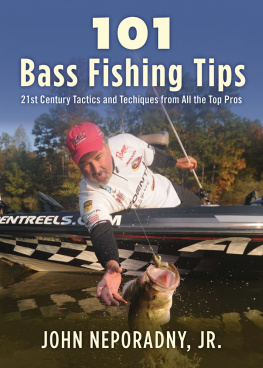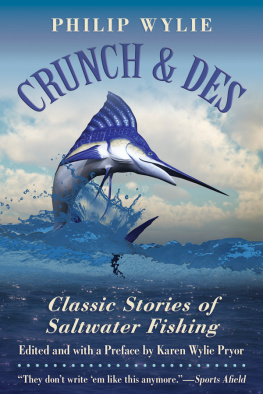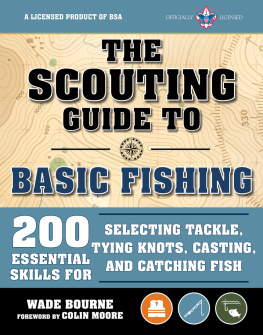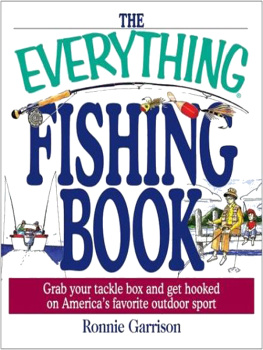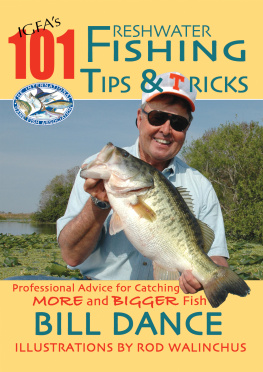Denizens of the Deep
true tales of deep-sea fishing
Books by Philip Wylie
Heavy Laden
Babes and Sucklings
Gladiator
The Murderer Invisible
Footprint of Cinderella
The Savage Gentleman
Finnley Wren: His Notions and Opinions
As They Reveled
Too Much of Everything
An April Afternoon
The Big Ones Get Away
Salt Water Daffy
The Other Horseman
Generation of Vipers
Corpses at Indian Stones
Fish and Tin Fish
Night Unto Night
An Essay on Morals
Crunch and Des: Stories of Florida Fishing
Opus 21
The Disappearance
Three to Be Read
Denizens of the Deep
and by Philip Wylie and
William W. Muir
The Army Way
Denizens of the Deep copyright 1947, 1949, 1950, 1952, 1953 by Philip Wylie. Copyright renewed 1974, 1976, 1977, 1979, 1980, 1981 by Frederica Wylie and Karen Prior.
All rights reserved. No part of this book may be reproduced in any manner without the express written consent of the publisher, except in the case of brief excerpts in critical reviews or articles. All inquiries should be addressed to Skyhorse Publishing, 307 West 36th Street, 11th Floor, New York, NY 10018.
Skyhorse Publishing books may be purchased in bulk at special discounts for sales promotion, corporate gifts, fund-raising, or educational purposes. Special editions can also be created to specifications. For details, contact the Special Sales Department, Skyhorse Publishing, 307 West 36th Street, 11th Floor, New York, NY 10018 or info@skyhorsepublishing.com.
Skyhorse and Skyhorse Publishing are registered trademarks of Skyhorse Publishing, Inc., a Delaware corporation.
Visit our website at www.skyhorsepublishing.com.
10 9 8 7 6 5 4 3 2 1
Library of Congress Cataloging-in-Publication Data is available on file.
Cover design by Jane Sheppard
Print ISBN: 978-1-63450-248-1
Ebook ISBN: 978-1-63450-890-2
Printed in the United States of America
Contents
this book is fondly dedicated
to two of the finest friends I have
who happen to be
two of the worlds finest anglers ,
Helen and Mike Lerner
Foreword: an outdoor writers outdoor writer
If you know of Philip Wylie only as an old-time fishing writer, theres much to learn. He was emphatically not an outdoor writer, in the sense that I, for example, am an outdoor writer. He was an actual, legitimate writer, who happened sometimes to write about fishing, simply because he loved it so.
His output included hundreds of mainstream articles, novels, serials, short stories, syndicated newspaper columns, and lots more. He also wrote screenplays while in Hollywood, was an editor for Farrar & Rinehart, served on the Dade County, Florida Defense Council, was a director of the Lerner Marine Laboratory, and at one time was an adviser to the chairman of the Joint Congressional Committee for Atomic Energy, which led to the creation of the Atomic Energy Commission, according to his bio in Wikipedia.
But you would never know any of this from reading his fishing storieshe simply sets his angling life aside from all the rest, and writes like one of the guys.
Writers are an envious bunch. One of the ways I can tell if a thing is well written is that somewhere in the midst of it I will find myself thinking, Damn, I wish I had written that! With Philip Wylie, there are those moments on pretty much every page. He is an outdoor writers outdoor writer, a guy with wit, broad experience, and an obvious bone-deep knowledge of the fishing he writes about, and yet theres none of the elitist tone in his writing that seemed to creep into a lot of stuff written in his era, particularly among big game fishermen. He writes like a guy whom you might have shared a boat and a beer with last week. Wylies stories were written, however, in the days when you could book an offshore charter boat and skipper for sixty-five to a hundred dollars per day, according to Wylie, who found it excruciatingly expensive.
Wylie is loaded with smart-aleck remarks that could have come from Dave Barry a few years back instead of a guy writing in the Eisenhower era. Like this: Guys who buy a boat to save money on fishing are like those who marry their blondes [mistresses] to save money on jewelry.
And this: Every metal part on a boat reacts in sun, saltwater, and air. And here, by reacts I mean falls apart in.
He talks thus about taking on really big fish, like tuna and marlin:
At some point in the Homeric struggle, there is always a point... when the angler realizes... that he has set himself to do, for fun , something not unlike unloading a coal barge, alone, with a big shovel, fastand no time even for wiping sweat.
Wylie was also one of the first to write about the then-infant sport of flats fishing for snook, sea trout, reds, mangrove snapper, barracuda, baby tarpon, and the like. And he had the sense of what it could becomelots of exciting fish easy to catch on light, manageable, and affordable tackle, many even catchable without using a boat but by wading or fishing from a bridge or pier, and not requiring the shoveling of the coal barge, either, when one was hooked.
To him every day on the water was a blessing, and he had many after he moved to Florida. I havent years enough, energy enough, or money enough to go on high adventures, he wrote in this book of his latter years. I merely have high adventures where I am.
How can you beat that philosophy?
He was a friend of Hemingway and a force behind the founding of the IGFA with Michael Lerner. He lived in a day when millions of giant bluefin tuna went past Bimini in season, followed by a whole lot of very large mako and white sharks. He was evidently one of the few early on who appreciated sharks as a fascinating part of the seas web, in an age when most anglers routinely killed every one they could lay hands on.
Sailfish, on the other hand, Wylie and apparently everybody else routinely brought on board and clubbed to death, at least early in his offshore career, an act that would horrify most billfish anglers these days. He fished them on 18-pound test braided nylon, and with the reels of that time, it must have been a tricky proposition. He began to release them, as he did all other species not taken for the table, as he gained experience.
The angler... if he has the time to spend... in the end becomes less angler and more naturalist, he mused.
Simply read through the preface of this book and youre likely to wish you could have known Philip Wylie and shared a boat with him. Read the rest of the book and youre likely to feel you have. Its a voyage well worth taking.
Frank Sargeant was long time outdoor editor of the Tampa Tribune and a senior editor of Florida Sportsman Magazine before he retired to work seventy hours a week at freelancing .
Preface: some thoughts on fishing
In looking over the informal essays you are about to reada collection arranged by my publishersI felt that the net effect might, in some ways, be misleading.
For instance, fish arent quite as easy to catch as it occasionally appears here. And the big ones in the sea arent quite as accessible to the average Joe as he might imagine from reading this. It costs money and takes time to go after them, although sea fishing isnt exclusively a rich mans sport.
I would not want my readers to imagine that I, for example, had ceaselessly fared forth on the Gulf Stream and come in with the cruiser half sunk by its load of fish. And so, to correct such possible inference, I felt a Preface advisablea note, let us say, of caution, coupled with a certain amount of confession of the sort said to be good for the soul. To wit:

